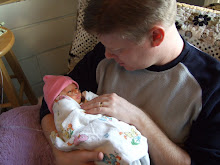The third universal element found in CPMs is intentional church planting. This may appear to be an overly obvious point given that Church Planting Movement is our goal, but it is amazing how quickly we forget that we must have an intentional plan for church. It is insufficient to only do evangelism. A new believer doesn't know what to do next. This idea of church (the coming together of believers to be the visible and physical Christ in the world) is not automatically understood. Meeting together, baptism, communion, giving, outreach, service and other functions of the church all must be taught through the scripture.
What we teach here is very important because it will determine how easy or difficult it will be for churches to multiply. We must be careful not to substitute our tradition for the commands of God, (Mark 7:8) and not to impose extra-biblical requirements on what a church requires. I have read stories of early South American missionary churches floating pipe organs down the Amazon because they were necessary for church!! Imagine the effort required if a second church was needed!! This may seem ridiculous to us today, until we think about all the things we associate with church that we may bring to another culture (keyboards, guitar, large gatherings, buildings, committees, policies and procedures, one speaker/teacher, etc.). None of these traits are bad in and of themselves just like a pipe organ isn't bad, but these characteristics are not necessary and are not scripturally required for church.
Here is one simple model for church that has been effective around the world. There are others, but this does a great job of boiling church down to its simplest form. It uses the acronym POUCH.
P- Participative Bible Study - No prepared sermons, just everyone studying the Bible and bringing their gifts (Ephesians 4:11) to the group.
O - Obedience based - the church is based on action and obedience rather than knowledge and information intake.
U - Unpaid lay leadership - a necessary requirement (and Biblical) in places where church must expand rapidly.
C - Cell (or)
H - House churches - no buildings required here. Again, very similar to the New Testament.
Of course, there are many issues that will come up just as they did with the early church in the book of Acts. When they do, the pattern should be for the local church to go to the scriptures and determine how to handle it.
We could spend an eternity getting into theological discussions of church, leadership, and doctrine, but that's not the point here. The point is to boil church down to it's simplest form and then have a strategy to show new believers how to do it. It won't happen by itself.
Monday, April 20, 2009
Subscribe to:
Post Comments (Atom)





No comments:
Post a Comment